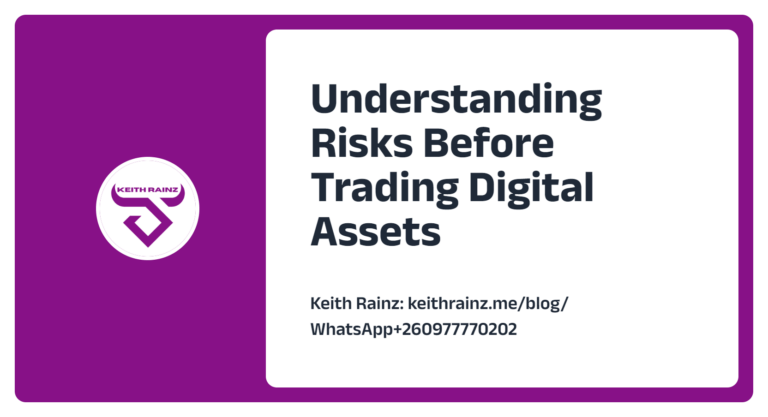Africa is one of the world’s fastest-growing crypto markets. Cryptocurrency is widely used by people and company owners in the area for peer-to-peer payments, remittances, investments, and storage. We urge you to learn about the major factors driving African countries to adopt cryptocurrencies in large numbers, as well as which countries have done so most successfully.
Many African countries are attracted to bitcoin due to difficult economic situations.
In Chainalysis’ Global Cryptocurrency Adoption Index, Kenya, Nigeria, South Africa, and Tanzania are among the top 20 countries.
Crypto legislation in Africa differs depending on the country.
What characterizes Africa as a crypto-friendly continent?
The adoption of cryptocurrencies in African countries has a great potential. Currently, this region accounts for only 3% of all global crypto transactions. Despite this, according to the Chainalysis analysis, the overall volume of crypto transactions has increased by 1200 percent in the last year. Residents of African countries are open-minded to bitcoin for a variety of reasons:
People who do not have access to financial services
According to The Guardian, more than 700 million Africans out of a total population of 1,200 billion lack access to banking services. And the financial services industry is still in its infancy. Financial service companies levy exorbitant fees to maintain customer accounts, which are simply out of reach for the majority of inhabitants. As a result, Africans are turning to cryptocurrencies, which offers a great way to save and store money. Due to a lack of access to banks, Africa is also the top in retail peer-to-peer transfers, accounting for 7% of all transactions compared to 5.5 percent globally.
Payments of remittances
Many Africans are forced to leave the region to work in nations with more developed economies due to the low level of living. Remittances are sent by those who have left their country to their families. According to the Chainalysis research, more than $48 billion has been sent to African countries as remittance payments, and this number is continually increasing. Traditional financial institutions, on the other hand, charge exorbitant costs for foreign transactions, particularly to African countries. Furthermore, some African governments impose restrictions on the size of international transfers. As a result, migrants are driven to seek out more cost-effective and speedier methods of sending money. Cryptocurrency saves the day once more.
Inflation
Many African countries are facing significant inflation and, as a result, national currencies are depreciating. As a result, in times of severe inflation and economic crises, many Africans are turning to cryptocurrencies to save their money. The volatility of cryptocurrencies isn’t as bad for them. It’s worth noting that while Nigerian young and the conditional middle class prefer to safeguard their investments with stablecoins, affluent people choose to use more volatile coins, particularly Bitcoin, for this purpose.
International commerce
For local businesses, using cryptocurrencies for settlements is less expensive and more accessible than using a bank: transactions with digital assets are faster and more profitable, and no accompanying documentation are required. Furthermore, several banks forbid their corporate clients from transferring funds to China, thus shutting off a multibillion-dollar market. As a result, the adoption of crypto payments benefits African business owners tremendously. To begin with, cryptocurrencies allow you to send money with minimum fees. Second, crypto payments can be nearly instantaneous, which is particularly crucial for businesses that rely on financial flow to stay afloat.
Top 5 Countries in Africa where crypto payments legal
1. Nigeria
In Nigeria, there is no cryptocurrency-specific legislation. The authorities have previously turned a blind eye to digital assets. The Central Bank, on the other hand, forbade the country’s commercial banks and other financial institutions from performing cryptocurrency-related operations and serving crypto exchanges in February. Payments with cryptocurrencies, on the other hand, are not technically forbidden. According to Chainalysis, Nigeria is also among the top 20 countries in the Global Crypto Adoption Index for 2021.
2. Kenya
Kenya is one of Africa’s most advanced countries in terms of cryptocurrency use. According to TripleA, about 8.5 percent of the population of the country uses cryptocurrency for payment or investment. Kenya is also a global leader in peer-to-peer trade. Furthermore, Kenya’s Central Bank has declared that Bitcoin will be used as a reserve currency to address the country’s economic issues.
3. South Africa
In terms of cryptocurrency legislation, South Africa is the region’s leader. The country passed legislation recognizing digital currencies as financial assets in June 2021. It requires cryptocurrency exchanges to register with the government, adhere to KYC/AML requirements, identify customers, and report questionable transactions.
4. Tanzania
Tanzania ranks among the top twenty countries in terms of cryptocurrency adoption, alongside Kenya, Nigeria, and South Africa. A small community in Tanzania has even been transformed into a smart village thanks to cryptocurrency. In addition, Tanzania’s Vice-President, Samia Suluhu Hassan, has urged the country’s Central Bank to investigate the use of cryptocurrencies and blockchain technology, as well as prepare for the eventual entrance of cryptocurrencies into public circulation.
5. Namibia
There are currently no formal crypto legislation in Namibia that allow the usage of cryptocurrency as a payment method. The Central Bank of Namibia, on the other hand, has launched a comprehensive investigation of cryptocurrencies, with results expected in April 2022. Despite the fact that the chairman of the central bank has a positive attitude toward cryptocurrencies, he nonetheless warns about the potential risks of crypto trading.
Which countries in Africa are using cryptocurrency?
According to a Chainalysis report, African countries such as Nigeria, Kenya, South Africa, and Tanzania are the most active users of cryptocurrencies.
Which bank in Kenya allows cryptocurrency?
Kenya’s Central Bank has announced that Bitcoin will be used as a reserve currency to address the country’s economic issues.
Is cryptocurrency banned in Africa?
The laws governing cryptocurrency in different African countries may differ. As a result, only Algeria, Egypt, and Morocco have an official restriction on the use of cryptocurrency.
Conclusion
Under the right circumstances, African countries might become leaders in the crypto sector’s growth pace and see their populations adopt digital currencies. The African crypto market may appear unimportant at first glance: it is small, and there are no innovative projects driving the sector forward, yet it is here that digital assets can become far more in demand than in the West or Asia.






